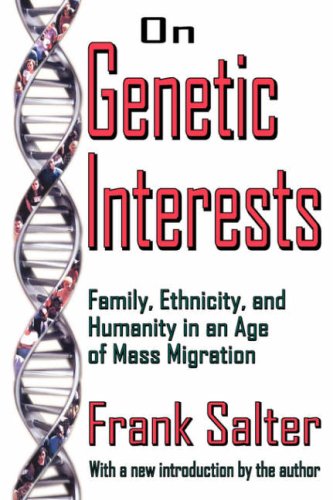

Most ebook files are in PDF format, so you can easily read them using various software such as Foxit Reader or directly on the Google Chrome browser.
Some ebook files are released by publishers in other formats such as .awz, .mobi, .epub, .fb2, etc. You may need to install specific software to read these formats on mobile/PC, such as Calibre.
Please read the tutorial at this link: https://ebookbell.com/faq
We offer FREE conversion to the popular formats you request; however, this may take some time. Therefore, right after payment, please email us, and we will try to provide the service as quickly as possible.
For some exceptional file formats or broken links (if any), please refrain from opening any disputes. Instead, email us first, and we will try to assist within a maximum of 6 hours.
EbookBell Team

0.0
0 reviewsFrom an evolutionary perspective, individuals have a vi- tal interest in the reproduction of their genes. Yet this interest is overlooked by social and political theory at a time when we need to steer an adaptive course through the unnatural modern world of uneven population growth and decline, global mobility, and loss of family and communal ties. In modern Darwinian theory, bearing children is only one way to reproduce. Since we share genes with our families, ethnic groups, and the species as a whole, ethnocentrism and humanism can be adaptive. They can also be hazardous when taken to extremes. On Genetic Interests canvasses strategies and ethics for conserving our genetic interests in an environmentally sustainable manner sensitive to the interests of others.
"[This] is a fresh and deep contribution to the sociobiology of humans, combining genetics with social science in original ways."--Edward O. Wilson, Harvard University
"The book greatly expands Hamiltonian kin selection' by making ethnies in control of territory the central arena of selfish genery' in a modern world of mass migration."--Pierre van den Berghe, University of Washington, Seattle
"Salter argues that all humans have a vital interest in genetic continuity that is threatened by mass migration. Salter advocates non-aggressive universal nationalism' as part of a balanced fitness portfolio' that includes investments in three levels of genetic interests--family, ethny, and the species as a whole. The synthesis is persuasive; the policy formulations provocative."--Irenus Eibl-Eibesfeldt, Max Planck Society
"Five stars for Salter--he has provided us with a deep and compelling explanation of what most people know and what guides much of their behavior, but fear to acknowledge publicly."--Michael T. McGuire, UCLA
"We are indeed all part of each other, as John Donne insisted even before the help of evolutionary genetics. But we are more part of some than others, and the nature of these boundaries of ethnic kinship has been ignored, avoided or denied. After Salter's virtuoso synthesis we can no longer duck these issues which become more important daily."--Robin Fox, Rutgers University
Frank Salter is an Australian political scientist who has been a researcher with the Max Planck Society, Andechs, Germany, since 1991.